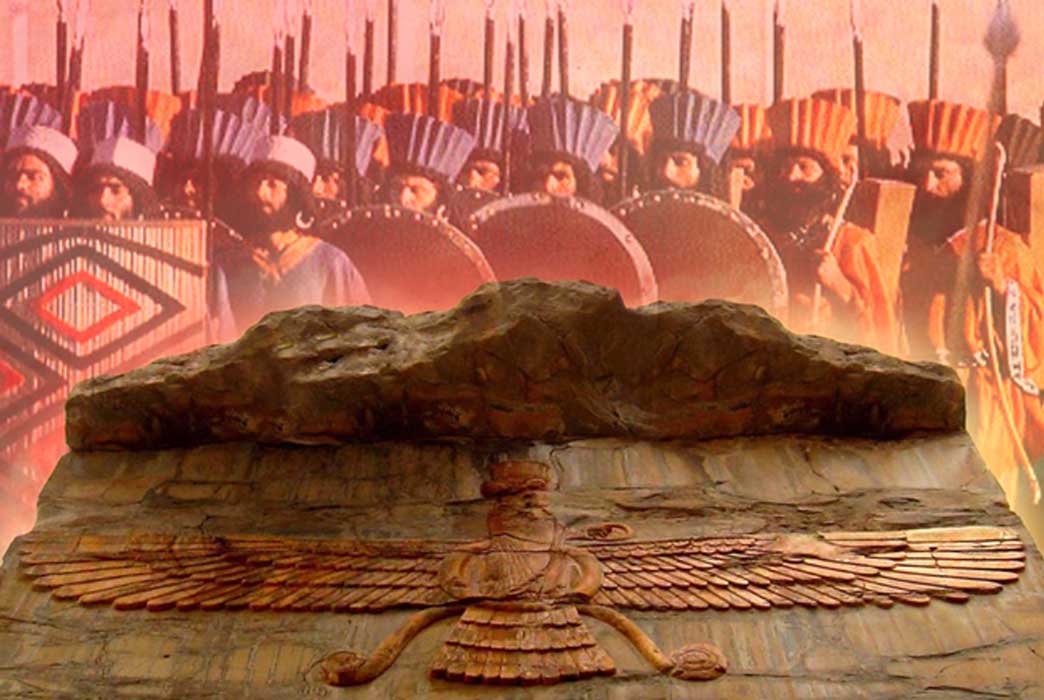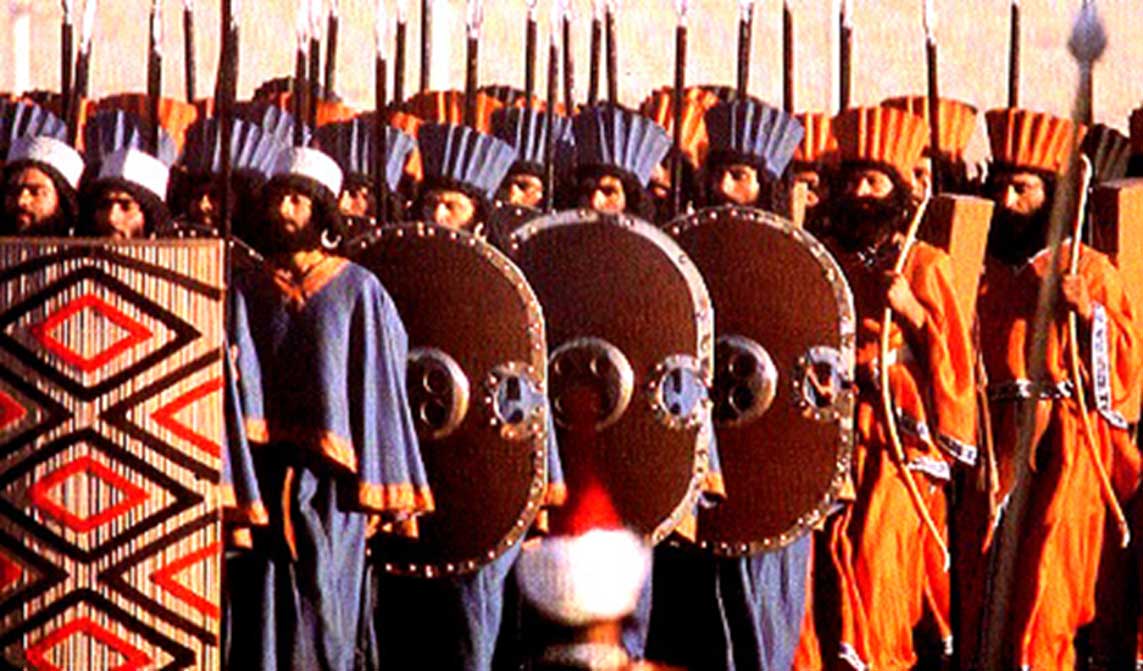
The Persian War Machine: The Immortals – Part II
The Persian war machine made empires beforehand look miniature. The Persians were able to take the best from all over the Near East and turn it into a force that could not be defeated for many centuries to come.
Many Guard Units
Herodotus states in 7.40 that “For before him (King) went first a thousand horsemen, chosen out of all the Persians; and after them a thousand spearmen chosen also from all the Persians, having the points of their spears turned down to the ground; and then ten sacred horses, called "Nesaian," with the fairest possible trappings.” The thousand spearmen marched with their spears reversed, and the spear butts, which would normally have a point, were replaced with “golden pomegranates.” Herodotus refers to these men as “spear-bearers.” These men were the king’s own spear-bearers.
Furthermore, Herodotus 7.41 mentions that once the thousand horsemen passed by, they were followed by ten thousand men who “went on foot; and of these a thousand had upon their spears pomegranates of gold instead of the spikes at the butt-end, and these enclosed the others round, while the remaining nine thousand were within these and had silver pomegranates. And those also had golden pomegranates who had their spear-points turned towards the earth, while those who followed next after Xerxes had golden apples.” While the passage provided describes what appears to the famous “immortal” it appears not. A thousand had upon their spears butts ‘pomegranates of gold’, while the remaining nine thousand had ‘silver pomegranates’. Behind the ten thousand came another thousand had ‘golden apples.’ While it appears that this is not the ten thousand as some suggest, perhaps it is. In other words, the thousand spearmen who’s spear-butts had a golden pomegranate were perhaps the captains in charge of the nine thousand. But who were the “Immortals”?
The Immortals
Herodotus makes the first mention of them in Histories 7.83 stating, “these ten thousand chosen Persians the general was Hydarnes the son of Hydarnes; and these Persians were called "Immortals," because, if any one of them made the number incomplete, being overcome either by death or disease, another man was chosen to his place, and they were never either more or fewer than ten thousand.” While Herodotus calls them by this title, they are not mentioned during the reign of Xerxes. Xenophon, who came later, does mention that Cyrus established a personal guard of ten thousand spearmen and mentioned they the guard of ten thousand was still existent when he wrote this in the 360s BCE.

Modern reenactors of the Immortals in their ceremonial dress at the 2,500-year celebration of the Persian Empire. (Public Domain)
The Immortals were a fearsome army of ten thousand men that was created by Cyrus the Great to guard him, and were recruited from the lower classes of Persia to serve as the king’s personal bodyguard day and night, and wherever the king went so did they. The name Immortals comes from that whenever one of them got ill, wounded, or even died, he was replaced quickly with another man to ensure that the number stayed at ten thousand.
- The Sumerian Military: Professionals of Weaponry and Warfare
- Naqsh-e Rustam: Ancient Tombs of Powerful Persian Kings
- The Immortals: An elite army of the Persian Empire that never grew weak
- Has the mystery of the Lost Persian Army finally been solved?
The Immortals were more than just mere spear-bearing infantry. In times of war, the Immortals surrounded the king while the inner core of Immortals consisted of two royal regiments; The first being infantry that carried a composite bow with a seven-foot-long spear and an akinakes (a dagger or short sword).
The second royal regiment of the Immortals was cavalry archers who carried spears and the majority of the Immortals that surrounded them were infantry. To give you a better picture of the Immortals in terms of battle formation. The front rank consisted of infantry carrying shield and spear, the spear they carried was seven feet in length, and they were the front, rear, and sides of the formation. They provide protection for the archers behind them while the cavalry likely stayed outside of the formation protecting the flanks.




